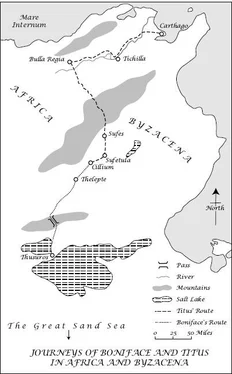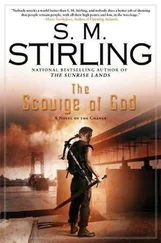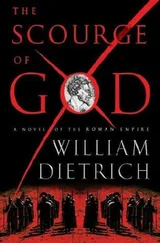Ross Laidlaw - Attila:The Scourge of God
Здесь есть возможность читать онлайн «Ross Laidlaw - Attila:The Scourge of God» весь текст электронной книги совершенно бесплатно (целиком полную версию без сокращений). В некоторых случаях можно слушать аудио, скачать через торрент в формате fb2 и присутствует краткое содержание. Жанр: Исторические приключения, на английском языке. Описание произведения, (предисловие) а так же отзывы посетителей доступны на портале библиотеки ЛибКат.
- Название:Attila:The Scourge of God
- Автор:
- Жанр:
- Год:неизвестен
- ISBN:нет данных
- Рейтинг книги:5 / 5. Голосов: 1
-
Избранное:Добавить в избранное
- Отзывы:
-
Ваша оценка:
- 100
- 1
- 2
- 3
- 4
- 5
Attila:The Scourge of God: краткое содержание, описание и аннотация
Предлагаем к чтению аннотацию, описание, краткое содержание или предисловие (зависит от того, что написал сам автор книги «Attila:The Scourge of God»). Если вы не нашли необходимую информацию о книге — напишите в комментариях, мы постараемся отыскать её.
Attila:The Scourge of God — читать онлайн бесплатно полную книгу (весь текст) целиком
Ниже представлен текст книги, разбитый по страницам. Система сохранения места последней прочитанной страницы, позволяет с удобством читать онлайн бесплатно книгу «Attila:The Scourge of God», без необходимости каждый раз заново искать на чём Вы остановились. Поставьте закладку, и сможете в любой момент перейти на страницу, на которой закончили чтение.
Интервал:
Закладка:
I turned to Maximus. ‘Whenever you are ready,’ I declared heavily.
‘Excellent; we understand each other, then,’ he returned briskly. ‘Instructions will be given you in due course. Meanwhile, you will carry on as normal with your duties at the palace.’ He shot us a calculating glance. ‘Never fear — you’ll both be well rewarded.’
Something snapped inside me. ‘You Romans think that everything must have its price!’ I heard myself shout. ‘Can’t you realize that some things are done for honour’s sake alone? Come, Gibvult.’ And turning on our heels we marched from the tablinum .
Soon after that second meeting with Maximus, Rome was rocked by a scandal, the details of which the senator did nothing to conceal; in fact, short of putting up posters, he did everything he could to publicize them. What happened was this. In a gaming session with the Emperor, Maximus lost heavily — more than he could afford to settle on the spot. Valentinian insisted that the senator surrender his signet ring as a pledge that he would repay the debt. Following the incident, Valentinian had a message sent to Maximus’ wife purporting to come from her husband (together with the ring as proof of identity). She should come at once to the palace to attend the Empress Eudoxia on some urgent business. Unsuspecting, Maximus’ wife complied. On arrival at the palace, she was taken to a remote bedchamber where she was raped by Valentinian. Predictably, when word got out (as Maximus made sure it would), the Emperor’s stock plumbed even lower depths.
Despite the scandal, in a gesture of defiance in the face of public opinion, the Emperor announced that he intended shortly to open, in person, a display of military Games to be held in the Campus Martius — a great plain in the west of Rome, between the Tiber and the city’s hills. The day before the event, I was approached by one of Maximus’ slaves, who handed me a note. It contained five words: ‘When he drops the mappa .’
My pulses quickening, I sought out Gibvult. ‘Tomorrow the Emperor will start the Games by dropping a white cloth,’ I told him. ‘That’s when we strike.’
He took the news calmly. ‘Better make sure we’re picked for duty, then,’ he grunted, without looking up from the task he was engaged in — buffing up his cuirass with a paste of fine sand and vinegar. ‘And check our swords are keen.’
Because of the extra spit-and-polish involved, attendance at ceremonial occasions was not exactly welcomed by members of the scholae ; so it was easy enough to ensure our names were on the duty roster.
It was a cool, bright, mid-March morning when the procession set out from the Palatine, the Imperial couple accompanied by the guard and followed by a train of courtiers and attendants. Along the Sacred Way we passed through the Forum Romanum, where we were joined by the Senate (headed by Maximus), resplendent in their archaic togas, then below the Capitol, and on up the Flaminian Way. Turning left off the great street at the Arch of Diocletian, we headed into the Campus Martius past the Pantheon and the Stadium of Domitian, to a roped-off open area where the contestants were assembled. The first event was to be a display of mounted archery by units of the vexillationes palatinae , the cream of the cavalry. The participants began lining up a hundred paces from a row of targets, which they would gallop towards, then shoot at as they passed.
Accompanied by Heraclius, and flanked by select members of the scholae (which I had made sure included Gibvult and myself), Valentinian mounted the steps of the podium. He took the white cloth that Heraclius handed him, and raised it aloft. I have to admit that, vile degenerate though he may have been, he was certainly imposing. With the purple robe and glittering diadem setting off his tall, athletic figure, he looked every inch a Roman emperor.
‘Let’s take Heraclius as well,’ Gibvult whispered. I nodded, my heart beginning to thump violently. Everyone knew that Heraclius had poisoned Valentinian’s mind against the Patrician. But for the eunuch, Aetius would still be living.
The mappa dropped.
Time seemed to freeze as we drew our swords and closed on Valentinian. He turned towards us, hand still uplifted, eyes widening in shock as the glittering blades moved towards his breast. I was vaguely aware of the riders surging forward from the starting-line, the crowd rising, mouths opening to shout encouragement. The illusion of time slowing lasted a mere heartbeat; I felt my sword jar briefly against bone, then it slid deep into Valentinian’s chest. I wrenched it free, blood spurting from the wound, saw Gibvult withdraw his own reddened blade. With a choking, gurgling cry, Valentinian staggered and collapsed. Stepping over the dying Emperor, we cut down Heraclius before he had grasped what was happening. At our feet, the two figures twitched briefly, then were still.
Slowly, the hubbub of the crowd died away as news of the killing spread. Then the vast silence was broken by a stentorian voice, that of Maximus: ‘People of Rome, you are free. The tyrant Valentinian is dead.’ 6
A mighty shout (clearly pre-arranged) issued from the assembled ranks of senators: ‘Romans, behold your new Augustus, Petronius Maximus.’
A brief pause, then from the packed multitude arose a swelling roar, ‘Maximus Augustus! Maximus Augustus! Maximus Augustus!’
With the permission of the new Emperor (whose purpose anyway we had served), we left the scholae and, having had our fill of Rome and Romans, prepared to return to our homes in Germania. But before departing, we received a message that one Titus Valerius Rufinus, who had been an officer on Aetius’ staff, desired to see us. It could do no harm, we thought. We decided I should speak for both of us, and the meeting was arranged.
The rest you know, Titus Valerius, my friend.
My tale is done [wrote Titus in the Liber Rufinorum ], as will soon be Rome’s, if Romulus’ vision should prove true. The twelve vultures he saw represented, according to the augur Vettius, the twelve centuries assigned to the lifetime of his city. Fable that may be, yet I cannot think the Empire of the West will long outlive the man whose genius alone for so long nourished hope for its survival. Maximus is no Aurelian to subdue the barbarians and restore the state. Already, in Gaul the Franks and Visigoths begin to push beyond their boundaries, and our army there is starved of men and resources to contain them. Hispania is ravaged by Bagaudae and the Sueves, Africa in Vandal hands, Britain lost beyond recovery. Only Italia, Provincia, and central Gaul remain inviolate. But for how long? Our armies dwindle by the day; the Treasury is empty; we look to the East for aid — which does not come.
Let my son Marcus, if that should be his wish, take up this history where I leave off. But it is to Constantinople, not Ravenna, that he must turn his eyes. West Rome may fall, but East Rome will live on. Vale .
1Chnodomar, King of the Alamanni, defeated by the Romans at the Battle of Strasbourg in 357.
2Horburg in Alsace.
3In large measure impressively intact today.
4In Teutonic mythology, Orms or Worms were giant serpents.
5A famous charioteer, the first to win a thousand races.
6On 16 March 455, by an eerie coincidence almost exactly five centuries to the year and the day from the murder of Julius Caesar, on the Ides (15th) of March 44 BC.
AFTERWORD
The murder of Valentinian III ended the Theodosian dynasty which, for all its defects, did provide a measure of stability to the crumbling Roman state. Deprived of the inspired leadership of ‘the great safety of the Western Empire’, as a Byzantine chronicler has described Aetius, that empire entered its terminal decline. Valentinian’s successor, Petronius Maximus, lasted barely three months before being lynched by an angry mob, as he prepared to flee Rome ahead of a Vandal assault on the city. 1He was briefly followed by Avitus, who had served Aetius so well in Gaul but who, falling foul of the Senate (enjoying a temporary, astonishing revival of its power) was sentenced to death by that assembly. Next, German warlords proceeded to set up a succession of puppet emperors (of whom Majorian, another former colleague of Aetius, alone showed any promise), the last of whom, Romulus Augustus (sic!) was deposed in 476, bringing to an end the Roman Empire in the West.
Читать дальшеИнтервал:
Закладка:
Похожие книги на «Attila:The Scourge of God»
Представляем Вашему вниманию похожие книги на «Attila:The Scourge of God» списком для выбора. Мы отобрали схожую по названию и смыслу литературу в надежде предоставить читателям больше вариантов отыскать новые, интересные, ещё непрочитанные произведения.
Обсуждение, отзывы о книге «Attila:The Scourge of God» и просто собственные мнения читателей. Оставьте ваши комментарии, напишите, что Вы думаете о произведении, его смысле или главных героях. Укажите что конкретно понравилось, а что нет, и почему Вы так считаете.












